|
Ruth Shaw Wylie (June 24, 1916 – January 30, 1989) was a composer and music educator. She described herself as “a fairly typical Midwestern composer,” pursuing musical and aesthetic excellence but not attracting much national attention: “All good and worthy creative acts do not take place in New York City,” she wrote in 1962, “although most good and worthy rewards for creative acts do emanate from there; and if we can’t all be on hand to reap these enticing rewards we can take solace in the fact that we are performing good deeds elsewhere.” She was among the many twentieth-century American composers whose work contributed to the recognition of American “serious” music as a distinct genre. Wylie was born in Cincinnati, Ohio and grew up in Detroit, Michigan, where she received her undergraduate degree and a master's degree in music composition at Wayne State University (WSU). In 1939 she entered the doctoral program in music composition at the Eastman School of Music where she studied with Bernard Rogers and Howard Hanson. She was awarded the PhD in 1943 and took a position teaching at the University of Missouri where she stayed until 1949. In the summer of 1947 she studied with Arthur Honegger, Samuel Barber, and Aaron Copland at the Berkshire Music Center at Tanglewood. She returned to Detroit to teach at WSU where she remained for twenty years, retiring from teaching as Professor Emerita in 1969. She moved to Salt Lake City, Utah, and then to Estes Park, Colorado in 1973, and continued composing. At WSU Wylie taught music theory and composition and served as head of composition; during one year she served as interim chair of the music department. In the early 1960s she founded, directed, and performed with the WSU Improvisation Chamber Ensemble. She continued to count her work with group improvisation as among her most significant contributions. She received a number of awards, including "Friends of Harvey Gaul" and the ASCAP Standard Award. Wylie was a resident fellow at the Huntington Hartford Foundation (1953–54) and at the MacDowell Colony (1954 and 1956). She composed The Long Look Home for the Michigan Chamber Orchestra for a Bicentennial Celebration commission from the Michigan Council for the Arts. Wylie published articles on music in the Journal of Aesthetics and Art Criticism, in the Detroit journal Criticism, and elsewhere. Wylie composed about 60 titles. Her earlier works—from the 1940s into the 1960s—include sonatas, symphonies, string quartets, and didactic pieces for piano. In these works she develops her own interpretation of American neoclassicism. Examples are Five Madrigals from William Blake (1950); Concerto Grosso for string orchestra and seven solo woodwinds (1952); String Quartet No. 3 (1954), completed during a Huntington Hartford Foundation residency; Sonata for Viola and Piano (1954), completed at the MacDowell Colony; and Sonata for Flute and Piano (1959). Her later works, almost entirely instrumental, are noticeably freer in their construction in accordance with avant-garde ideas of the 1960s and 1970s. Wylie explained in 1985, “I try to study and evaluate all the new musical trends as they arise—twelve-tone, electronic, aleatory, computer, tonal modifications, microtones—whatever. Then I may use, at least to a limited extent, what in all of these trends I find to be aesthetically sound and creatively honest.” Examples include Involution (1967) for orchestra; Psychogram for piano (1968); The Long Look Home (1975), a multimedia work for orchestra with poetry and slides (1975); Incubus for flute, clarinet, percussion, and cello ensemble (1973); Views from Beyond, suite for orchestra (1978); Music for Three Sisters for flute, clarinet and piano (1981); Seven Scenes from Arthur Rackham for two flutes, oboe, viola, cello, piano and percussion (1983); Flights of Fancy (1984), commissioned by Doriot Anthony Dwyer; and Concerto for Flute and Strings (1986). |
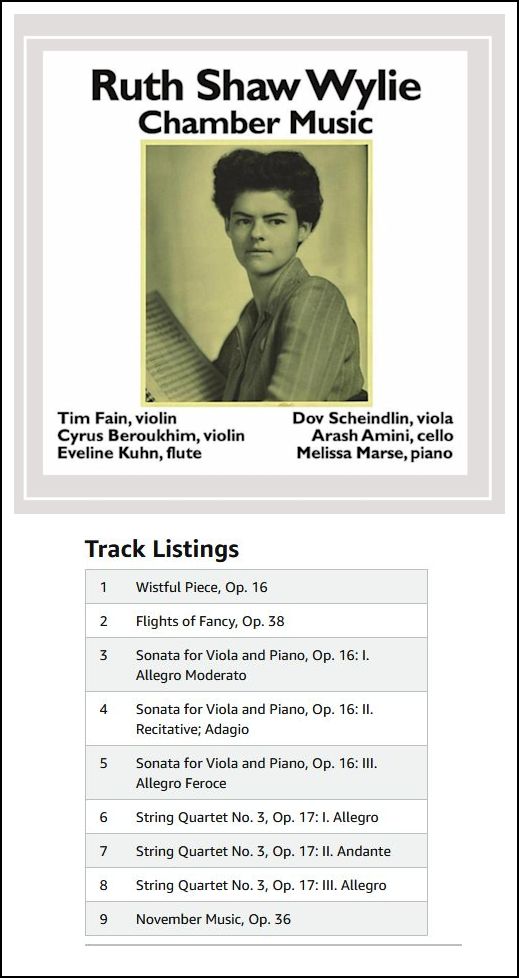
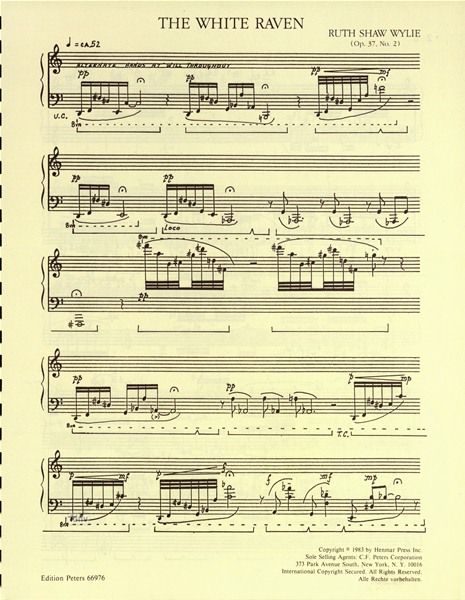
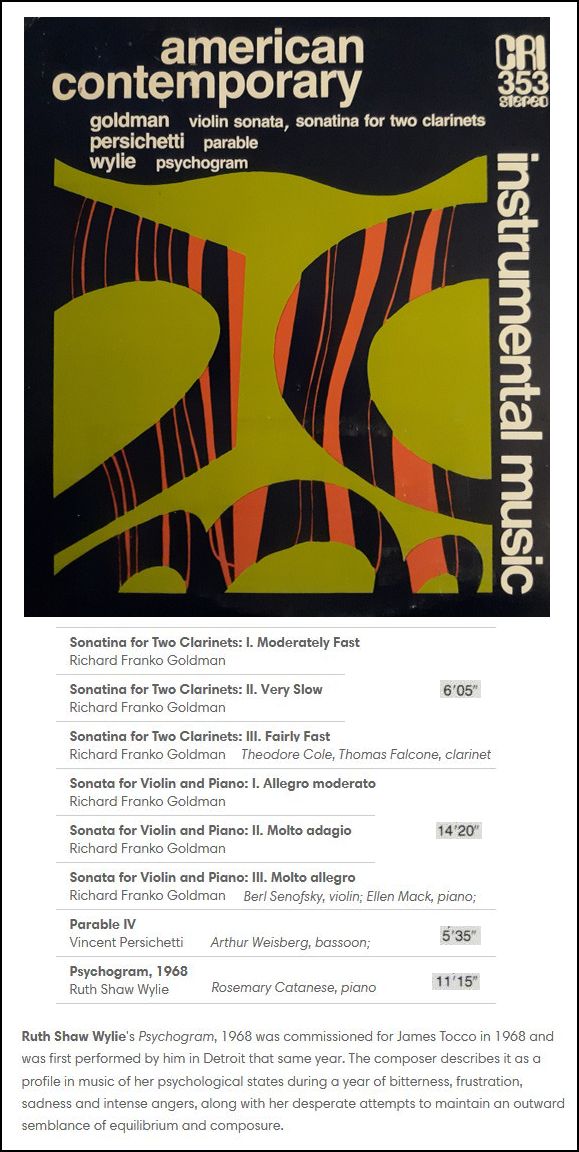
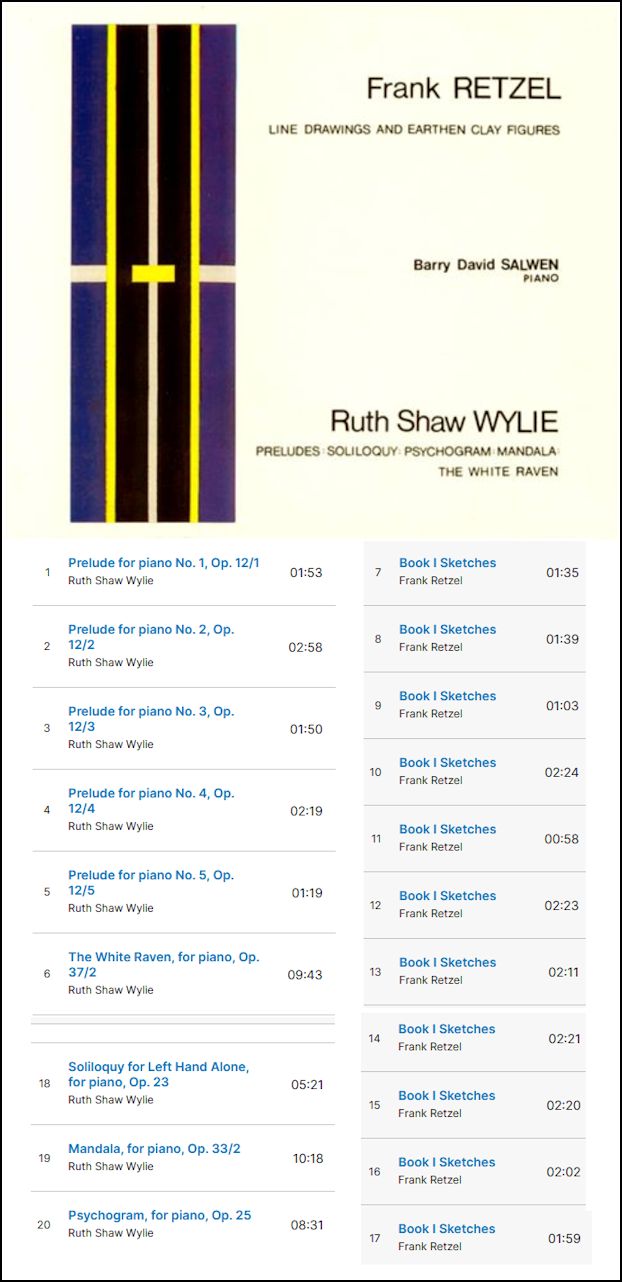
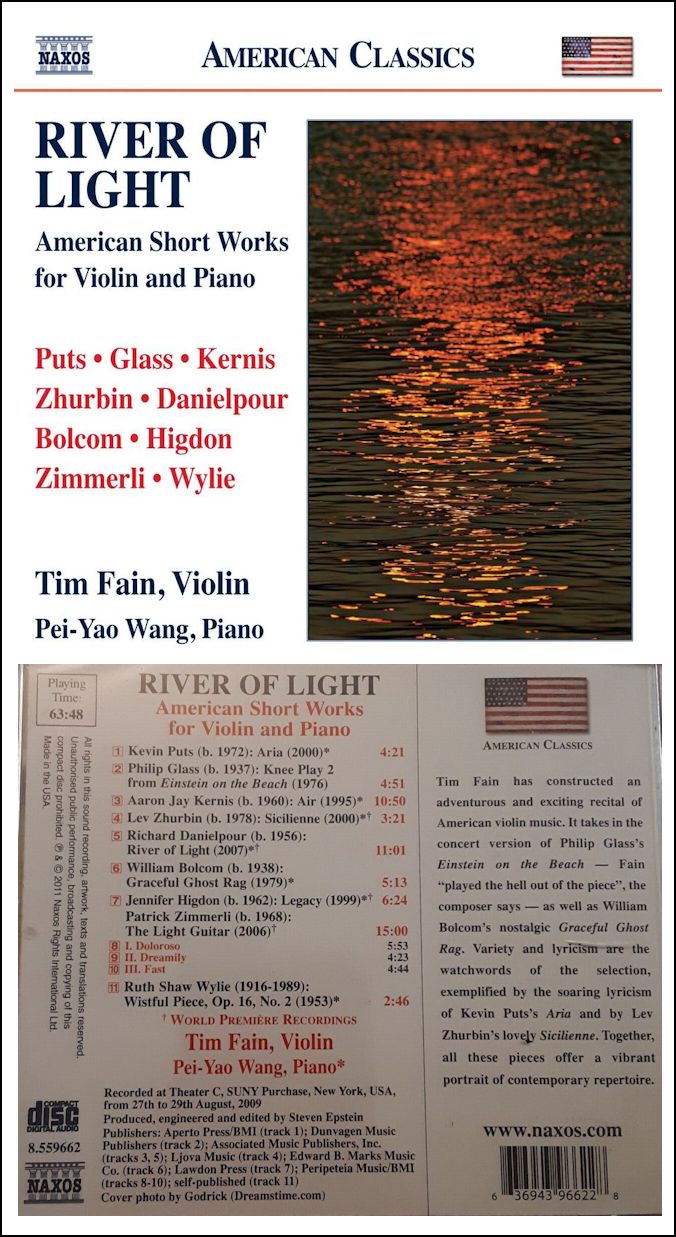
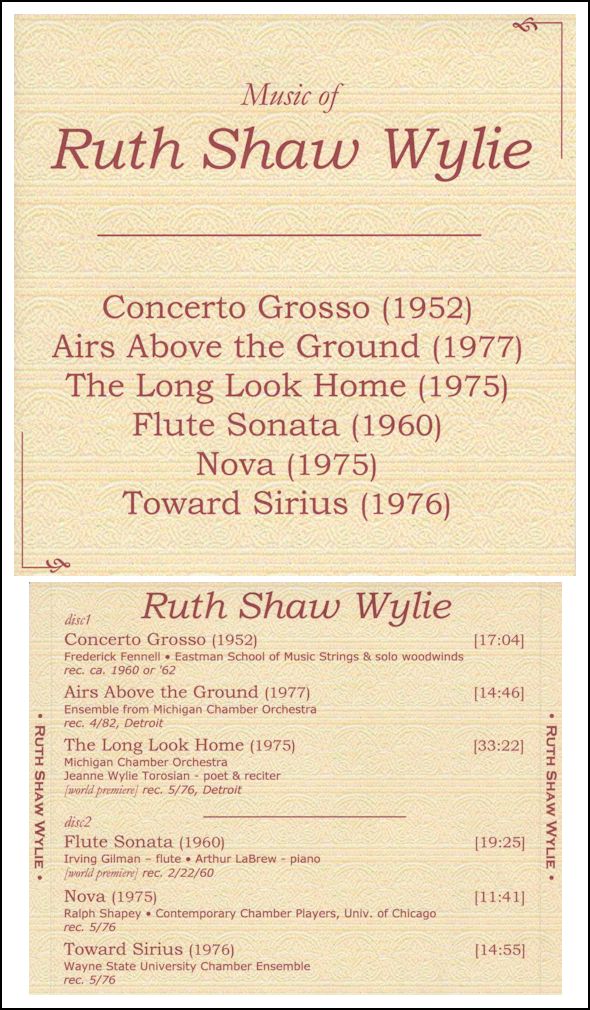
© 1986 Bruce Duffie
This conversation was recorded on the telephone on August 27, 1986. Portions were broadcast on WNIB ten years later to celebrate her 80th birthday. This transcription was made in 2023, and posted on this website at that time. My thanks to British soprano Una Barry for her help in preparing this website presentation.
To see a full list (with links) of interviews which have been transcribed and posted on this website, click here. To read my thoughts on editing these interviews for print, as well as a few other interesting observations, click here.
Award - winning broadcaster Bruce Duffie was with WNIB, Classical 97 in Chicago from 1975 until its final moment as a classical station in February of 2001. His interviews have also appeared in various magazines and journals since 1980, and he now continues his broadcast series on WNUR-FM, as well as on Contemporary Classical Internet Radio.
You are invited to visit his website for more information about his work, including selected transcripts of other interviews, plus a full list of his guests. He would also like to call your attention to the photos and information about his grandfather, who was a pioneer in the automotive field more than a century ago. You may also send him E-Mail with comments, questions and suggestions.